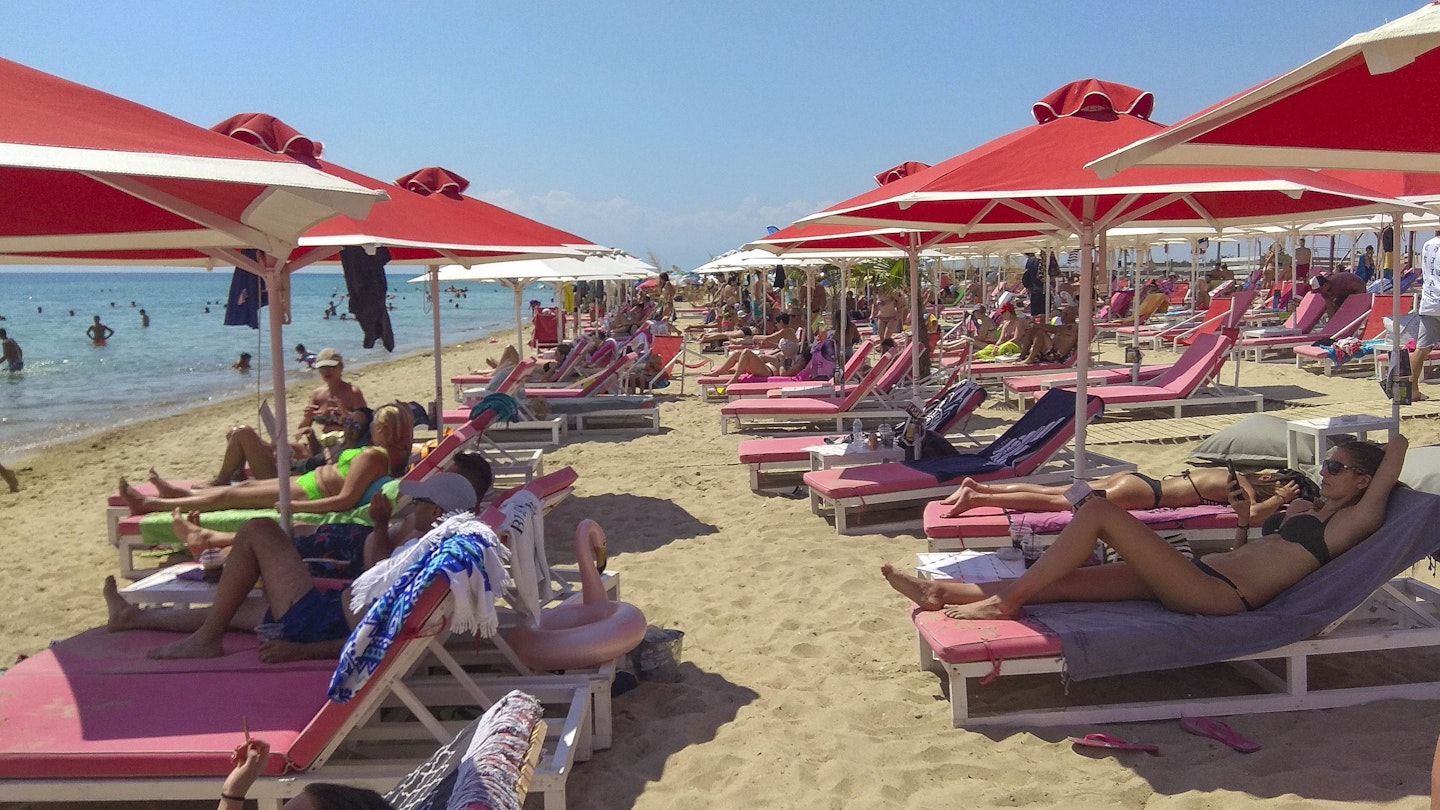Reclaiming Greece’s Beaches: The Towel Movement
Páros embodies all the hallmarks of a quintessential Cyclades island with its white-washed villages, iconic blue-domed churches, harbors fringed with lively tavernas, and sun-drenched beaches. However, one challenge that it faces is the limited space available for beachgoers to enjoy its sandy shores, often requiring payment ranging from €40 to €120 for access.
Amidst Greece’s relentless summer heatwave, locals and tourists have flocked to the coastline, yearning for a spot to cool down. Notably, securing a relaxing place on the beach has grown increasingly difficult due to the encroachment of commercial operators, who have seized control of many public beach areas, monopolizing them with pricey sun loungers available for hire.
This situation has created a stark contrast between the natural beauty of Páros’ beaches and the commercial exploitation that restricts access to them, undermining the essence of public spaces that should be accessible to all.

Towel Movement
In response, locals are fighting back with a campaign called the Towel Movement, which aims to reclaim Greece’s beaches for public use. This movement is characterized by demonstrations across various beaches where community members gather with towels in hand, many holding protest signs and distributing leaflets, as they attempt to swim in areas they believe have been unlawfully restricted.
Campaigners argue that unauthorized operators are taking advantage of tourists, charging exorbitant fees for sun loungers while occupying larger sections of public beaches than legally permitted. They proclaim their right to public space, asserting that they deserve to enjoy their beaches without the burden of commercial exploitation.

Illegal Occupation
Although Greek beaches are public property, local businesses such as restaurants, bars, and hotels are allowed to lease segments of the shoreline. Regulations are in place to ensure that about 50% of the area remains unoccupied for those who choose not to pay for services. However, residents claim that these businesses are unlawfully expanding their occupied space.
Moreover, many argue that operators act as gatekeepers, preventing access to anyone who refuses to pay by erecting barriers that obstruct even public access to the sea.
Community members have reported instances where some operators charge tourists €60 for a day’s rental of an umbrella and two sunbeds, while a ‘VIP area’ access costs an astonishing €120 for an exclusive spot. Additionally, they allege that certain beach clubs have also taken control of public parking areas, limiting access for all.

A Greece-wide Problem
The issue of beach privatization isn’t limited to Paros; the Towel Movement has spread to numerous islands facing similar challenges, including Naxos, Mykonos, Crete, Rhodes, and Santorini. On Naxos, for instance, a social media group comprising over seven thousand members aims to spotlight the obstacles beachgoers encounter on that island as well.
Recently, there have been reports of public unrest among Naxos residents, who protested against beach bars that restrict access to paying customers exclusively.
What Happens Next?
As pressure from activists intensifies, positive changes are starting to occur. Following a protest on a local beach in Paros, several sun loungers were removed, and a few beach bars were forced to close for violating legal occupancy limits. While these actions are encouraging, caution persists among the residents, as previous efforts have seen sun loungers reappear shortly after inspections.
In response to the growing outcry, the Greek Minister of Finance has pledged to increase inspections of beach bars, ensuring compliance with regulations. Local governing officials also express their commitment to addressing these issues, indicating that they will monitor operations for any potential illegal occupation.
Activists remain steadfast in their commitment to protest and raise awareness until stricter regulations ensure that Greece’s beaches are accessible to everyone.
This article was first published on August 21, 2023, and updated on August 22, 2023.





